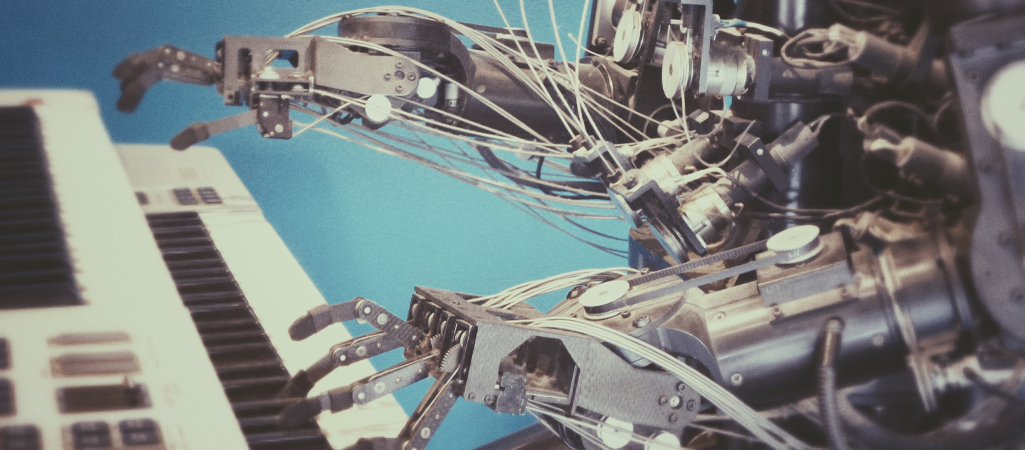
The first battle in the war between humans and robots might take place over … books?
Amazon, the world’s largest publisher and seller of books, released some additions to the rules and guidance for material published and sold on their platform, Kindle Direct Publishing (KDP).
The most noticeable change to the existing guidelines is that writers are now required to; “inform us [Amazon] of AI-generated content (text, images, or translations) when you publish a new book or make edits to and republish an existing book through KDP,” the company said. However, creators who create “AI-assisted” content need not disclose that.
Did you catch that?
Here’s how the new KDP policy separates the two categories:
- AI-generated content: Amazon “defines AI-generated content as text, images, or translations created by an AI-based tool. If you used an AI-based tool to create the actual content (whether text, images, or translations), it is considered “AI-generated,” even if you applied substantial edits afterwards.”
- AI-assisted content: If you created the content yourself, and used AI-based tools to edit, refine, error-check, or otherwise improve that content (whether text or images), then it is considered “AI-assisted” and not “AI-generated.” Similarly, if you used an AI-based tool to brainstorm and generate ideas, but ultimately created the text or images yourself, this is also considered “AI-assisted” and not “AI-generated.” It is not necessary to inform us of the use of such tools or processes.
The focal point here, for both writers and copyright lawyers, is that a specific distinction between disclosing “AI-generated” and not disclosing “AI-assisted” content is clearly drawn.
“You want to use AI to help you refine an old idea, that’s just fine, no disclosure needed for that,” said KMF LLP Senior Partner Roy Koletsky. “You want to use AI to break a streak of writer’s block by helping you come up with a new idea that you can refine later? That’s a little different and you must disclose that to them.”
The final distinction to make here is that the new AI-generated vs. AI-assisted disclosure is only (as of right now) for created works published via the KDP arm, which is only a small portion of the 300 million books Amazon sells every year, according to wordsrated.com.
While e-books are a small portion of Amazon’s overall profit, the total publishing and bookselling arm of Amazon is still responsible for about $30 billion in sales globally, every year, which, overall, is more than half of all sales by the Big Five publishers (Penguin & Random House, Hachette, HarperCollins, Macmillan and Simon & Schuster) according to wordstated.com. Many industry experts see this move by KDP as one small step for Amazon to lead all publishers and booksellers to continue to put the burden on creators to be more truthful about their creative process, stating that writers must “confirm an AI-based tool did not create content based on copyrighted works,” adding that writers are also “required to review and edit any AI tool outputs,” the company said.
The irony is also thick when you consider that the inspiration for these new KDP guidelines emerged not from a writer upset for not being credited for their work … but instead, being upset for being credited with work that is not theirs. Last month, writer Jane Friedman publicly (and painfully) pointed out that several books, not written by her, were being sold by vendors through Amazon. The suspected titles were AI-generated, Friedman surmised, and were immediately removed with Amazon promising more robust enforcement and identification of “AI-generated content” being sold on its Web sites.
Some insight into the spirit of the new guidelines and where the war may be turning can be gleaned from what Nicola Solomon, the chief executive of the U.K.-based Society of Authors, said to Guardian regarding the new KDP guidelines. She said writers are “seeking guarantees from Amazon that, when it acts as a publisher or as a supplier of services to authors – whether via KDP, Amazon Crossing, Thomas & Mercer, or any other venture – it will respect our recommended contractual wording on AI and, ‘not allow access to the work (by the publisher, or by any sublicensee) in any manner which could help the learning or training of artificial intelligence technologies. In addition, it will not without the author’s consent use or allow the use of AI in association with the production of this work, including but not limited to AI for translating, narrating, design of the cover or other artwork.’”
Exactly how deeply and under what intentions AI will be allowed to push its way into the creative process – whether through training itself or through inspiring/excluding humans, is unclear and is the inevitable next point of contention.
Let the war begin.